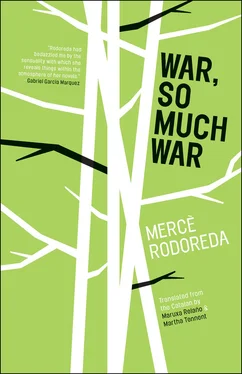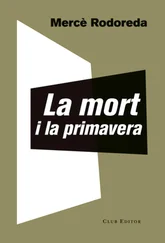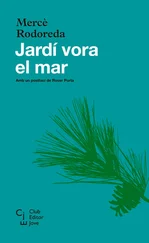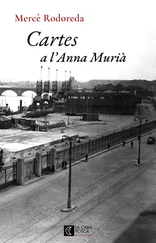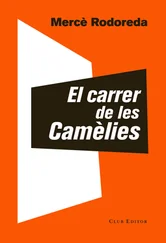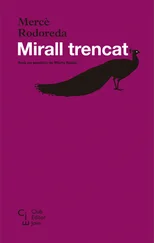They will bury them soon; they come in their trucks every two or three days. At first they had to flee because they were being shot at. Not anymore. . I turned around when I heard that voice. What a relief to see someone alive, a young woman, though haggard, her eyes still moist. She was holding a dead baby in her arms; I could tell immediately that it was dead by the waxen color of the legs and the hand that hung limply. She spoke to the child as if it were alive, my love, my baby. . With a strange look on her face, she stared directly into the eyes of a dead man lying by the edge of the water — not far enough in for the current to carry him away — as if the poor man, with his crushed head and chest, were to blame for the war. They dump them in mass graves farther up, sometimes they burn them, but not always. They can’t handle all the bodies, they’re overwhelmed. And meanwhile the vultures are getting fatter. Thank God the war is over. I witnessed the end of it; it ended right here in this river, and the river carried it out to sea. My house was up there. Only the four walls are still standing. We had a vegetable garden that was glorious. . just think about it, with the river right here to draw water from. I sleep a long way from here now, but I come every now and then to see if I can find a soldier who’s still breathing and can tell me where my husband died. . Everyone says I shouldn’t expect him to return. . I listen, without saying anything, but I don’t believe he’s dead. Did you fight in the war, too? You have the dry skin that comes with starvation, and your eyes seem to be set deep in a cave, but your sunken eyes wouldn’t matter if it weren’t for the fact that they’re filled with apprehension, no, that’s not it. . with horror. . If you knew the screams I have heard, screams of wounded men crying out for help, sobbing and shouting their unspeakable grief. . and then suddenly I would spot a hand rising in search of some kind of mercy, only to drop to the ground again because it was all over. Come with me. . you’re so young, I wish I could help you. . My husband’s name was Pere; he was taller than me and had black eyes, same as his hair. . perhaps you met him. . She looked me straight in the eyes and I felt an unbearable rush of shame. Shame at having run away from the war the way some flee the plague, alone, always alone with myself; shame at not having defended something, without knowing exactly what that thing was, which I should have defended as countless others had. . all of me imprisoned inside my own sad skin, withered from hunger, just as the woman with the dead baby with his head against her breast had said. She straightened the child and turned him to face me; his eyes were open, his mouth tightly closed. . I helped them fill sacks with earth; all the women in the village, not far from here, filled sacks with earth. We needed more hands. If you had heard the cannons and machine guns going off, if you had seen the airplanes dropping rosary upon rosary of bombs. If you had seen the light of the burning fires in the dead of night. . an inferno lasting months and months. Years and years. . years will have to pass before anything can be sowed by the river, because when they start digging they’ll find bones, not earth. The only thing left: bones. The bones of the nameless dead. That mountain range — see it? — the top was blown off by the shrapnel that pounded it repeatedly, in a never-ending punishment. I still don’t know how my son and I survived, but the terror he experienced has left him unable to shut his eyes, not even to sleep. We should be dead, he and I, and you wouldn’t have found anyone to tell you all this. . She fell silent, facing the river that flowed wide, her eyes fixed on the turbid waters that seemed to soothe her and carry her thoughts downstream. She left a while later, without glancing at me, without a word.
AN OLD, DILAPIDATED BOAT, PAINTED AND REPAINTED, RESTED against the wing of the airplane. The river was placid and the afternoon subdued, a lone afternoon in the middle of the world, animated only by the flight of birds that soared and soared before swooping down on the dead. The other riverbank was the same as the one I had just left behind, with its dead devoured by carrion birds. I pushed the boat far onto the bank so it wouldn’t be washed away. At dusk I came to the edge of a forest. I was again overtaken by the smell of trees; it was a relief to have branches and leaves for a roof. I started down a path that entered the woods amid tall grasses. From afar, I glimpsed a window with a light on inside. It was a deceptive light: When you thought you had almost reached it, it was still far away. I walked for a long time before I arrived at the clearing where a half-brick, half-wooden shack stood next to a well. The light from the window fell in front of the well. Beside it something gleamed. Before peeking through the window to see who lived in that shack in the woods, I leaned down. . I picked up the object and could hardly believe it: In my hand I held a knife just like the one I had given Eva the day I met her so she wouldn’t forget me, the one that was good for so many things. The screwdriver was missing the tip. Who could she have given it to, or who could have taken it from her, and how had it reached that corner of the woods? Had the person who had taken it from her lost it while drawing water from the well? Or on the day after a battle? I was so preoccupied with the knife in my hand that it wasn’t until a good while later that I walked over to the window and peered inside the house.

At the far end of the room hung a yellow-and-blue flowered curtain, and in front of it sat an old woman with a dark scarf around her head, a black shawl draped over her shoulders, and large eyeglasses. Her hand rose and fell rhythmically, pulling a thread. On one side of the curtain was an armoire with two doors, and on top of it a green jug and a bottle holding a candle. The old woman rose and approached the window. I quickly ducked. I circled the house on all fours. At the back of the house, by a window with closed shutters, stood the tallest, broadest tree I had ever seen. The fluttering of birds could be heard coming from deep within the branches. Firewood was stacked next to a cage, blocking my way, and beyond it was a henhouse. I couldn’t spot any windows on the wall where the flowered curtain hung on the inside of the shack, but I did see a pile of wood reaching almost to the roof, covering the entire wall. That, and a few bundles of heather. Just as I turned the corner and was about to walk by the entrance, the door swung open and a voice shouted: Who’s out there? The old woman emerged from the house with an axe in her hand, a dark silhouette against the light inside, tiny and rotund, her voice powerful. Why don’t you answer? What are you staring at? Answer me! If you heard she was beautiful, you’re a bit late! Three weeks late. I moved closer. When she saw me clearly in the light of the house, she lowered the axe. What are you doing here? Answer me! I said I was crossing the forest and was thirsty; the water in the river was disgusting, but I hadn’t dared draw water from the well for fear that the pulley would creak and betray my presence. Why didn’t you want to be discovered? I blurted out the first thing that came to mind: To avoid frightening the people who might be inside the house. She burst out laughing, tossing her head back. Come in, she ordered when she finally stopped laughing. You got money on you? No, I said. Come in! I don’t want it to be said that I haven’t been charitable at least once in my lifetime. Who told you there was a house so deep in the forest? I wanted to say that my feet had led me there but I was wary of angering her. I followed the path, I was fleeing from the river. . the axe gleamed, it looked sharp.
Читать дальше
